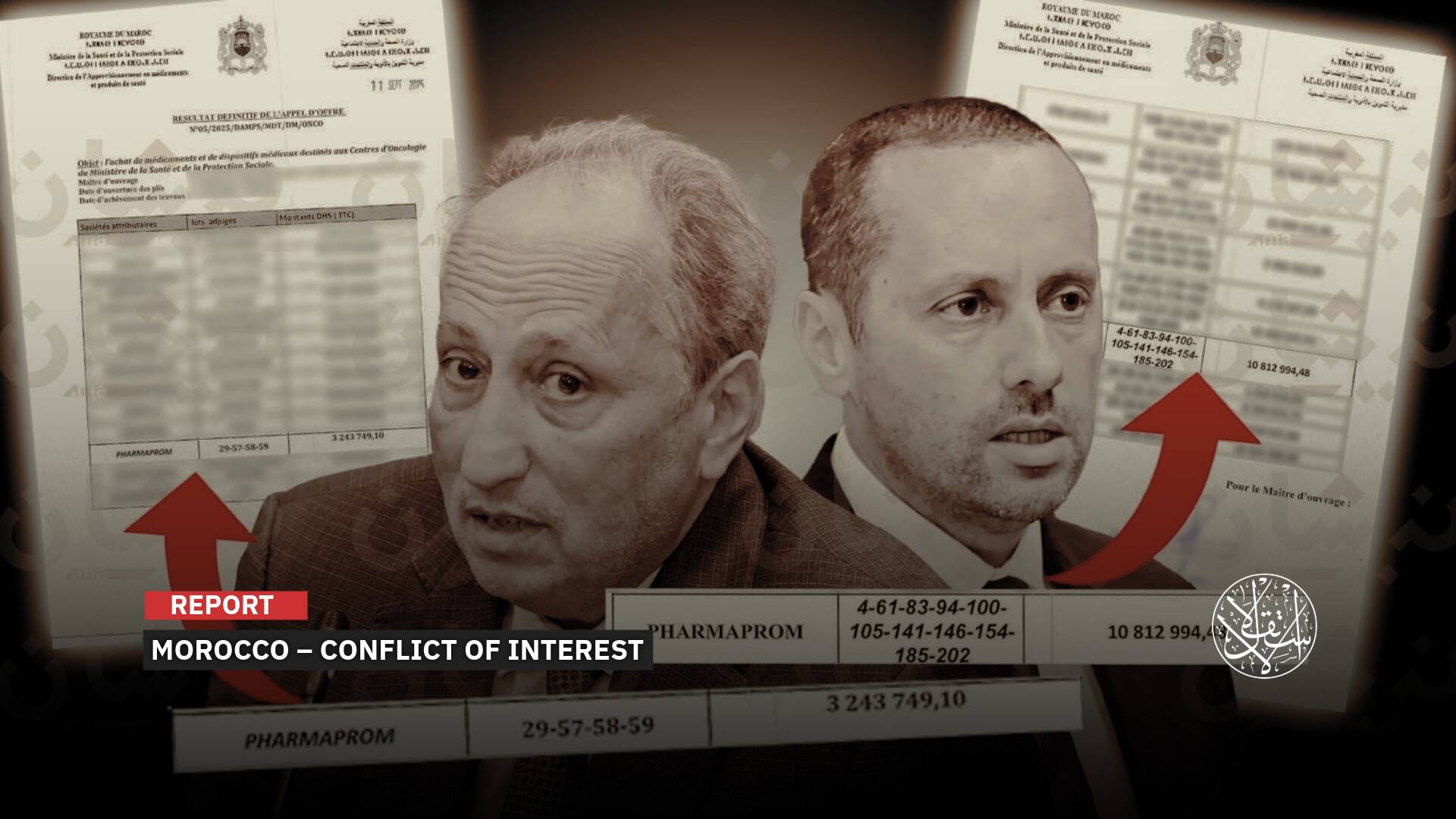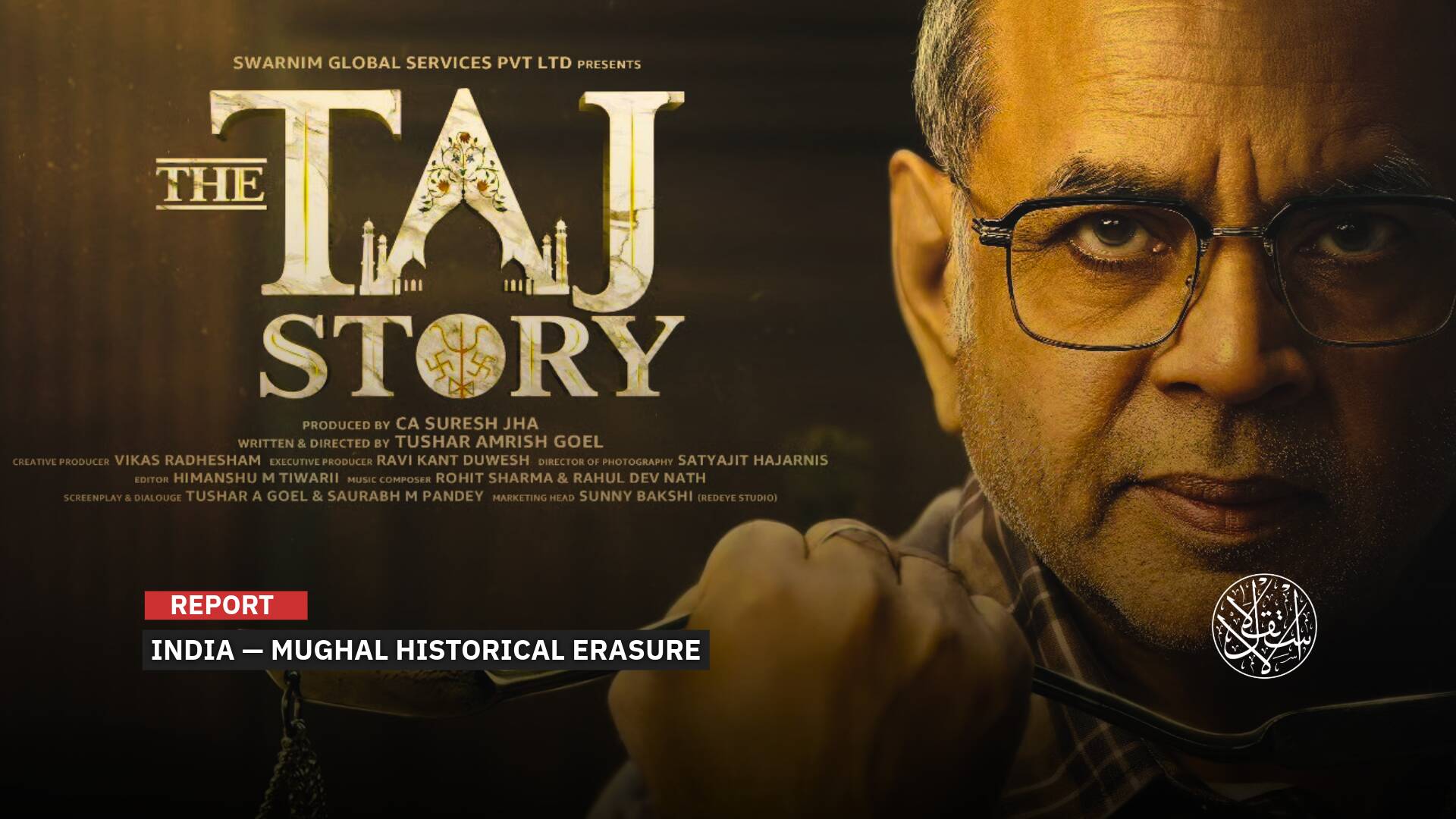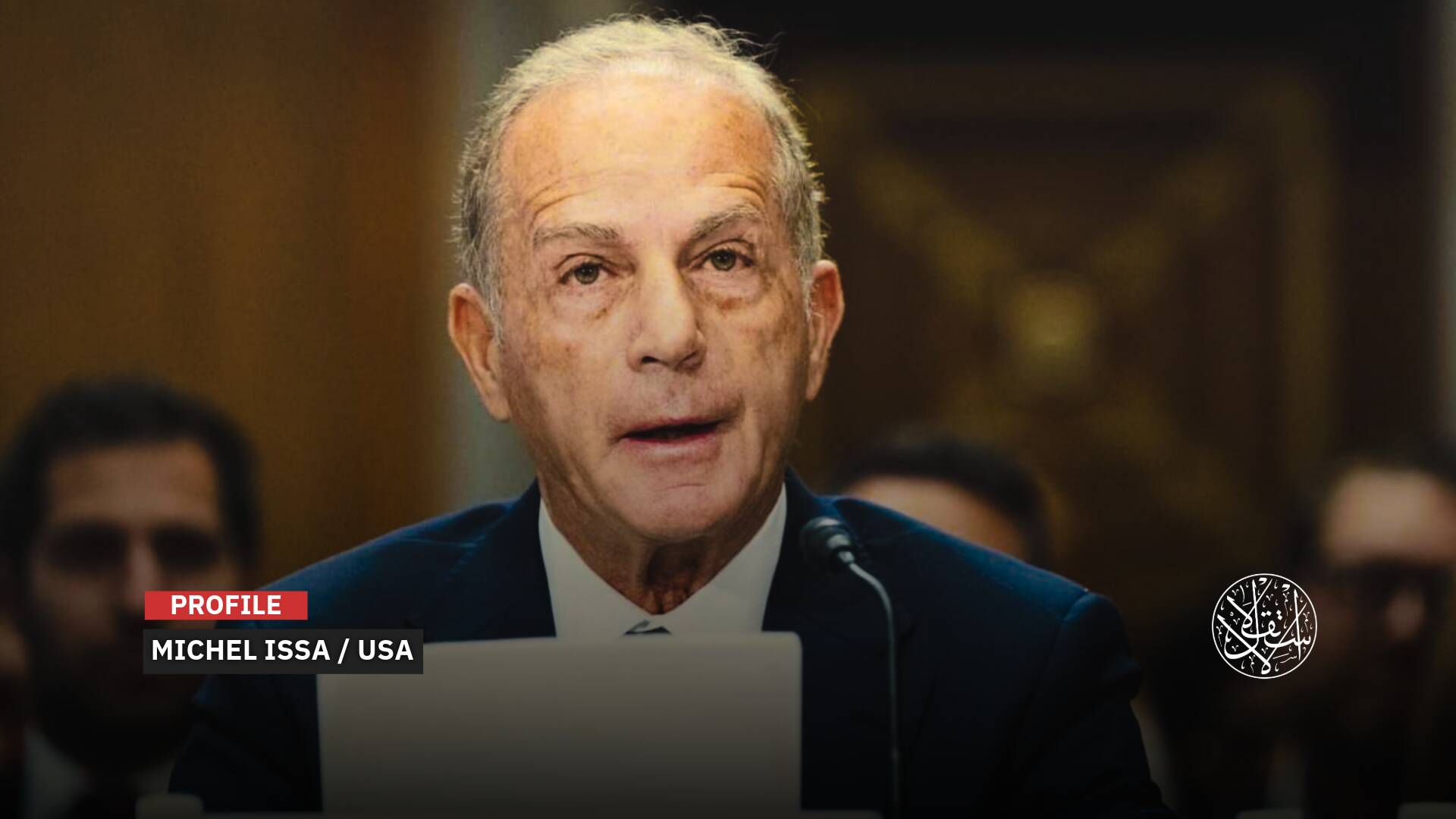The Canterbury Church Scandal: How a Deceased Priest Brought Down the Anglican World Leader

Justin Welby admitted to failures in reporting child sexual abuse.
After a wave of scandals involving European and American church priests, which led to the resignation of many of them, the abuse of children and young girls by church priests brought down the head of the world’s largest Anglican church in Britain.
On November 12, 2024, Justin Welby, Archbishop of Canterbury, Head of the Worldwide Anglican Church, and Chairman of the General Synod of the Church of England, announced his resignation, after being embroiled in the largest sexual scandal to hit this religious institution.
“Having sought the gracious permission of His Majesty The King, I have decided to resign as Archbishop of Canterbury,” Welby said in a statement.
The unprecedented resignation of the spiritual leader of the Anglican Church, representing 85 million adherents globally, marks the first such departure in the role's 1,427-year history. It has also ignited calls for the removal of openly homosexual bishops.
In his resignation letter addressed to King Charles III of the United Kingdom, 68-year-old Justin Welby admitted to failures in reporting child abuse, both physical and sexual, committed by lawyer John Smyth.
Smyth, who passed away in 2018 at the age of 77 in Cape Town, South Africa, was a prominent member of a Christian organization in the 1970s and 80s, where he abused his position to physically and sexually assault children in his home in Britain.
What is the story behind the Church of England scandals, and what are the implications and consequences of the resignation of the head of the world’s Anglicans?

Why Did He Resign?
Anglican priest John Smyth, who served in Zimbabwe and South Africa, became infamous for sexually abusing dozens of children and young men. Despite this, he continued his work across the continent.
Smyth was accused of committing violations at his home during evangelical Christian summer camps for students from elite private colleges in Britain in the 1970s and 80s. However, church leaders covered up his scandals.
As the leader of the Christian Camp movement, Smyth sexually abused up to 130 boys and young men over four decades across three continents. He evaded punishment as he passed away at age 75 in Cape Town in August 2018.
Due to widespread complaints and the mounting exposure of Smyth’s abuses, investigations began. His request to transfer to the Church of England was denied. Instead, he continued to serve in Zimbabwe and South Africa, passing away while under investigation by British police.
Following new evidence and mounting accusations of cover-up, British media accused the Church leadership of shielding Smyth and failing to hold him accountable. This led the Church to appoint independent investigator Keith Makin, a former church services leader, to examine the case.
On November 7, 2024, Makin published an “independent review,” addressing how the Church of England handled allegations of severe sexual abuse. The review revealed evidence of “cover-up” and “collusion” by its leadership.
Archbishop of Canterbury Justin Welby subsequently resigned, expressing in a formal statement his deep shame and disgrace over the historical failures of the Church of England. He described stepping down as being in the best interest of the Church.
Welby submitted his resignation with the approval of King Charles III after facing mounting pressure from British media and various organizations. This followed the Church’s acknowledgment of its role in covering up the abuse of over 130 children and young men by Smyth.
Before resigning, Welby initially denied plans to step down and refused to meet with victims, which fueled anger against him.
Marcus Walker, the vicar of St Bartholomew the Great in London, told CNN he “cannot imagine” how the archbishop can carry on in his position, alleging that Welby had “lost the confidence of his clergy.”
Throughout his tenure, Welby called for accountability from those accused of mishandling abuse cases, including his predecessor George Carey and the former Bishop of Lincoln. Until now, no Archbishop of Canterbury had ever resigned over child abuse allegations.

Scandal Details
The review by Keith Makin highlighted a long-standing conspiracy of silence regarding heinous abuses committed by Anglican priest John Smyth, who passed away in 2018, particularly against children within the Church.
The independent review revealed that Smyth’s sexual abuse of children was covered up by influential evangelical clergy. In 2012 and 2013, senior Church leaders missed a “critical opportunity” to properly report Smyth’s child sexual abuse to law enforcement, choosing not to act.
Failing to report the abuse allowed the threat to children to persist—when it could have been stopped. The review estimated that Smyth abused between 85 and 100 children, potentially reaching as many as 130, aged 13 to 17, across African churches.
Smyth subjected his victims to physical, sexual, psychological, and spiritual abuse, leaving a lasting impact on their lives. He allegedly beat them with a stick in his garden.
The review cast doubt on Archbishop Justin Welby’s handling of the case, indicating he bore personal and moral responsibility for further pursuing the matter. It emphasized that Welby should have acted as soon as he became aware of the abuses, but the Church hierarchy, fully aware of these crimes at the highest levels, opted for a cover-up.
In 2017, the Church conducted a mapping exercise to identify individuals aware of Smyth’s misconduct, confirming it had known the names of those involved for seven years. The review detailed abuses spanning from the 1970s until Smyth’s death in 2018, often involving brutal beatings, with some family members among his victims.
Welby might not have been fully aware of the severity of the abuses; however, the review suggested he likely had at least some minimal knowledge of Smyth’s concerning behavior. It was impossible to determine whether Welby was aware of the abuse’s severity in the UK before 2013, the year he became Archbishop.
Smyth’s abhorrent abuse could have been exposed in 2013, four years before it became public, had Church leaders and the Archbishop referred the allegations to police for investigation, Makin’s review concluded.
Channel 4 News first uncovered Smyth’s sexual abuse in early February 2017, reporting that Welby admitted the Church had failed terribly in addressing the violations.
The broadcaster described Smyth as a senior adviser to the Queen, a part-time judge, and the head of the Wearne Trust, a charity closely tied to the Church, which ran Christian holiday camps for public school students. It also referred to him as a prominent evangelical Anglican, a former associate of the Archbishop of Canterbury, and a serial abuser of boys and young men over decades.
Before his resignation, Welby faced mounting pressure to step down following the release of a damning report accusing him of failing to take sufficient action against a child sex abuser.
British and international media criticized Welby for not assuming responsibility for abuses that occurred from 2013 to 2024 under his leadership, prompting his resignation.

‘Cleaning’ Campaign
Following the release of the Makin review, which formally acknowledged the scandals and prompted the leader’s resignation, London newspapers called for a thorough cleansing of the church, including the dismissal of bishops who had shielded the corrupt pastor.
On November 14, 2024, The Guardian highlighted the Anglican Church's long history of failure to act on sexual abuse allegations, noting growing demands for the resignation of bishops complicit in these cover-ups. It cited lay clergy members who claimed that for nearly 40 years—since the Sheffield scandal in the UK involving 34 sexual assaults against women—the Church of England had attempted to ignore, minimize, or deny the suffering caused by these abuses.
Members of the Church of England's clergy are at risk of dismissal for failing to stop one of the most prolific child abusers in the institution's history. The review revealed that these individuals had prior knowledge of allegations against John Smyth, the evangelical Christian lawyer who sexually abused 130 young people in the UK, Zimbabwe, and other African countries before his death in South Africa in 2018 while under investigation.
Many of these clergy members remain in influential positions within the church. A safeguarding team is now assessing whether their actions warrant dismissal. Names highlighted in the Makin review such as Reverend Andrew Cornes, who serves on a key nomination committee, have been under scrutiny. Cornes told one of the victims who complained to him that he was not surprised that John Smyth had homosexual tendencies, implying he was aware but took no action to prevent these sexual crimes.
Victims have also called for the resignation of Bishop of Lincoln Stephen Conway, Bishop of Episcopal Ministry Jo Bailey Wells, and Reverend Sue Colman of St. Leonard's Church in Oakley.
After Channel 4 News reported on Smyth’s abuses in 2017, Bishop Andrew Watson of Guildford described himself as a victim, revealing that Smyth had subjected him to violent and brutal beatings.
Sexual abuse scandals within Anglican, Catholic, and other churches have profoundly damaged public perceptions of religion's moral authority, The Guardian has learned.
Citing data from the Makin review, the article revealed that between the 1940s and 2018, 390 clergy members from the Church of England and other denominations were convicted of child sexual abuse in the UK. The review suggested that these revelations had deeply shaken public trust, leaving students in Christian schools fearful of the religion itself.
Globally, the Vatican has also faced significant backlash, with 848 priests dismissed and 2,572 subjected to lesser penalties for similar offenses, contributing to widespread disillusionment with institutional religion.
Sources
- C of E may need to rethink archbishop of Canterbury role, senior cleric says
- The abuse scandal that led to the archbishop's resignation
- Archbishop of Canterbury faces calls to resign over church child abuse failings
- Archbishop of Canterbury resigns over handling of church child abuse case
- INDEPENDENT LEARNING LESSONS REVIEW
- Statement from the Archbishop of Canterbury
- The Anglican church’s long history of failing to act on abuse
- More than 30 Church officials face the sack after Archbishop of Canterbury quits
- Runners and riders: Who will be the next Archbishop of Canterbury?
- Church covered up 'abhorrent' abuse, report finds
- Archbishop admits Church ‘failed terribly’ over abuse revelations










